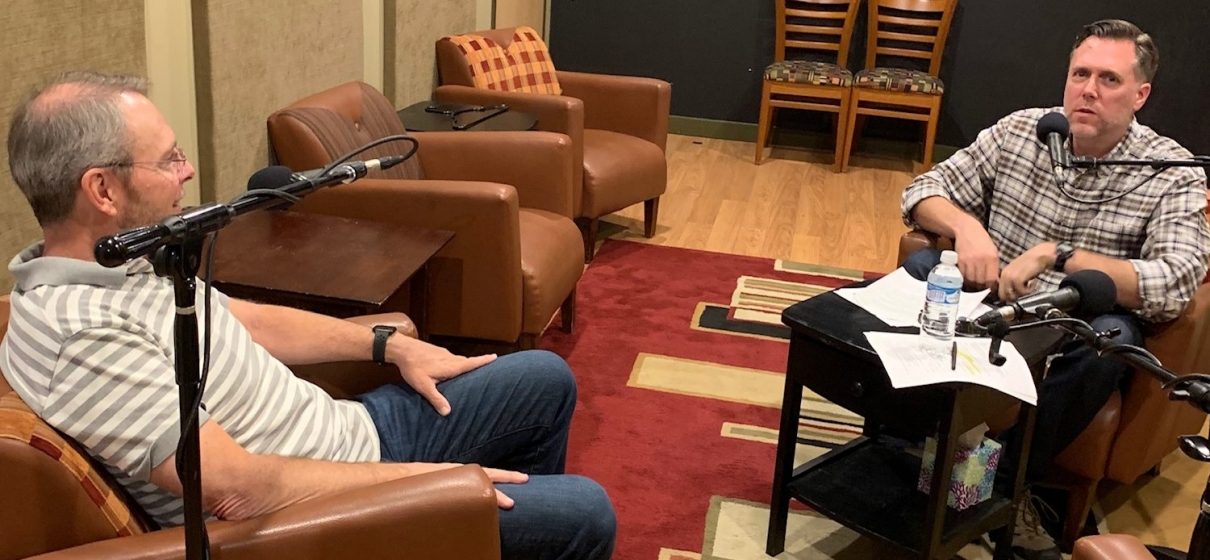5 Tips for Keeping the Peace Through the Holidays
Tis’ the season for celebrating our blessings, eating way too much food, and spending time with family. But, even more than the long to-do list, the financial strain, or the crowds and traffic, the most stressful part of the holiday season for some people is spending time with their family.
It’s a blessing to celebrate together when we enjoy the company of our family. But many times, grudges, estranged relationships, or policy and personality differences can make family gatherings a minefield for potential conflict.
So, what can we do to navigate this high-tension season in a God-honoring way?
Pray Continuously
Many times, we can have huge blind spots when it comes to familial interactions. We fall into conflict unsure of why we got there or how to get out. But God has a perfect perspective of our family gatherings. He understands what we are going through, what the person that we’re interacting with is going through, and what it will take to foster peace between us. Prayer orients our heart to the gospel and aligns us with the Spirit.
Know Yourself
Our response to challenging situations is often to get defensive, make excuses, or pass blame because we don’t want to see our own part in the conflict. Honest self-reflection can be difficult because most of us have our brains on autopilot, hardly being aware of the “why” behind our thoughts and actions. Being aware of our own thoughts, feelings, and emotions at any given time is vital for navigating high-stress situations and conflict.
Pick Your Battles
Proverbs 19:11 says “Good sense makes one slow to anger, and it is his glory to overlook an offense.” One tool available to us to self-reflect and discern whether our emotions are enticing us to overreact is business writer, Suzy Welch’s 10-10-10 Rule. To use 10-10-10, we think about our situation on three different time frames:
- How will we feel about it 10 minutes from now?
- How about in 10 months?
- How about in 10 years?
Thinking in this way can help us count the cost of conflict and discern whether or not we should overlook the offense.
Focus On People, Not Positions
Our families can have some widely varying perspectives and make some outrageous statements. But, instead of spending our efforts on debunking their belief or trying to convince them of our own viewpoint, we should attempt to understand the person behind the position. Ask clarifying or open-ended questions and listen without judgement or interruption. Saying, “this sounds like it’s important to you,” or “tell me more about that,” can go a long way towards helping us understand the motives, fears, and desires that are beneath the surface of a statement. The main objective in our family interactions shouldn’t be to win arguments, but to love others as Christ has loved us.
Apologize First
Sometimes, conflict can’t be avoided. Though unpleasant as it is, conflict has the potential to help us grow and mature. Matthew 7:5 admonishes, “first take the log out of your own eye, and then you will see clearly to take the speck out of your brother’s eye.” Many times in conflict, the hurt we experience can blind us to our culpability. The fact is, it takes two people to cause conflict, and you only have control over one of those people. Prayerfully seek God’s perspective about your role in the conflict and why you feel as you do about the situation and then take the first step towards reconciliation by apologizing first. Taking responsibility for our own sins and seeking forgiveness from others can dissolve huge stumbling blocks in the relationship and draw us closer to reconciliation not only to each other, but also to Christ.
As you navigate this holiday season, remember that nothing tries us quite like relationships do. Managing conflict and then committing to reconciliation when conflict arises is a constant struggle.
But the grace that the gospel extends to us isn’t limited to the forgiveness of sins, but includes the promise that God would transform us into a new person with a new nature. Through our struggles, we can become more like Christ.
So, step into those difficult family gatherings with the hope and confidence that as you strive to love people well and keep the peace, you are being transformed into the image of Christ and reflecting his gospel and grace to those around you.

















